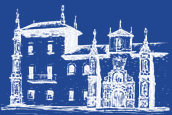Article Title
Abstract
One hundred Basque-American youth between the ages of nine and fifteen were interviewed at the beginning and end of a two week long Udaleku held in Bakersfield California in 2013 to determine: 1) the primary reason children attended Basque camp 2) the skills and abilities participants exhibited at the onset of Udaleku 3) the extent to which youth skills and interest in txistu, song, dance, euskara, pala, and mus changed over the course of camp, 4) the effect Udaleku had on the children’s level of Basque identity and pride 5) the children’s assessment of camp conditions, organization and instruction, and 6) the effects of gender, age, family composition, and Basque community of origin on skills, interests, identity and pride.
DOI
10.18122/boga/vol5/iss1/5/boisestate
Recommended Citation
Petrissans, Catherine M.
(2017)
"Assessing Udaleku 2013: The Effects of Gender, Age, Family, and Community on Basque Youth Skills, Interest, Identity and Pride,"
BOGA: Basque Studies Consortium Journal: Vol. 5
:
Iss.
1
, Article 5.
10.18122/boga/vol5/iss1/5/boisestate
Available at:
https://scholarworks.boisestate.edu/boga/vol5/iss1/5

About the Author
Dr. Catherine M. Petrissans received her B.A. in Sociology from Loyola Marymount University and her M.A. and Ph.D. in Sociology from U.C. Riverside. She is currently Professor of Sociology at Clarion University of Pennsylvania. She has served as chair of the Department of Sociology and teaches sociology courses in the area of social theory, inequality, family, and social problems. Dr. Petrissans conducts research on ethnic identity among Basque-American youth and has recorded albums in the endangered Basque language with her folk group NOKA.